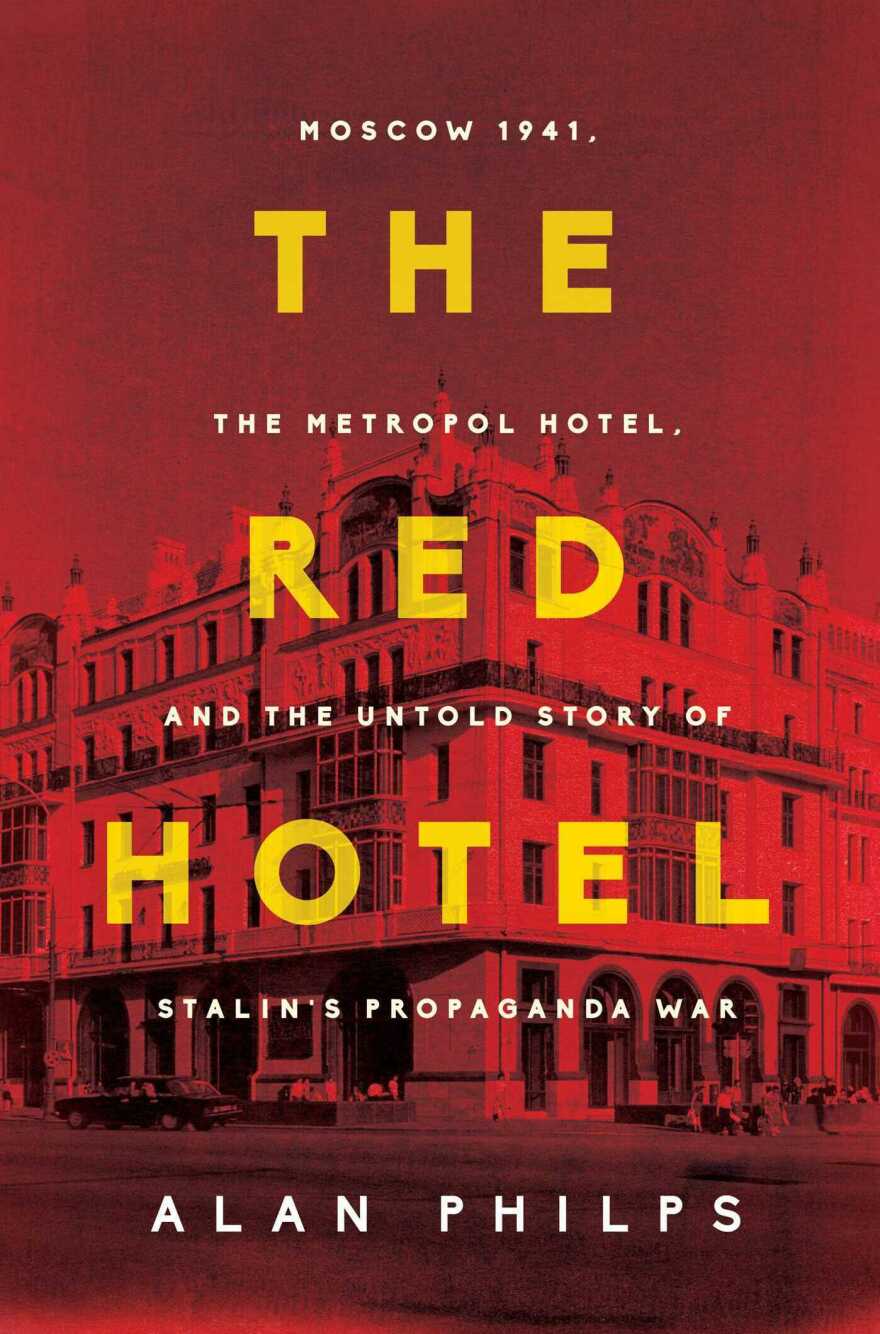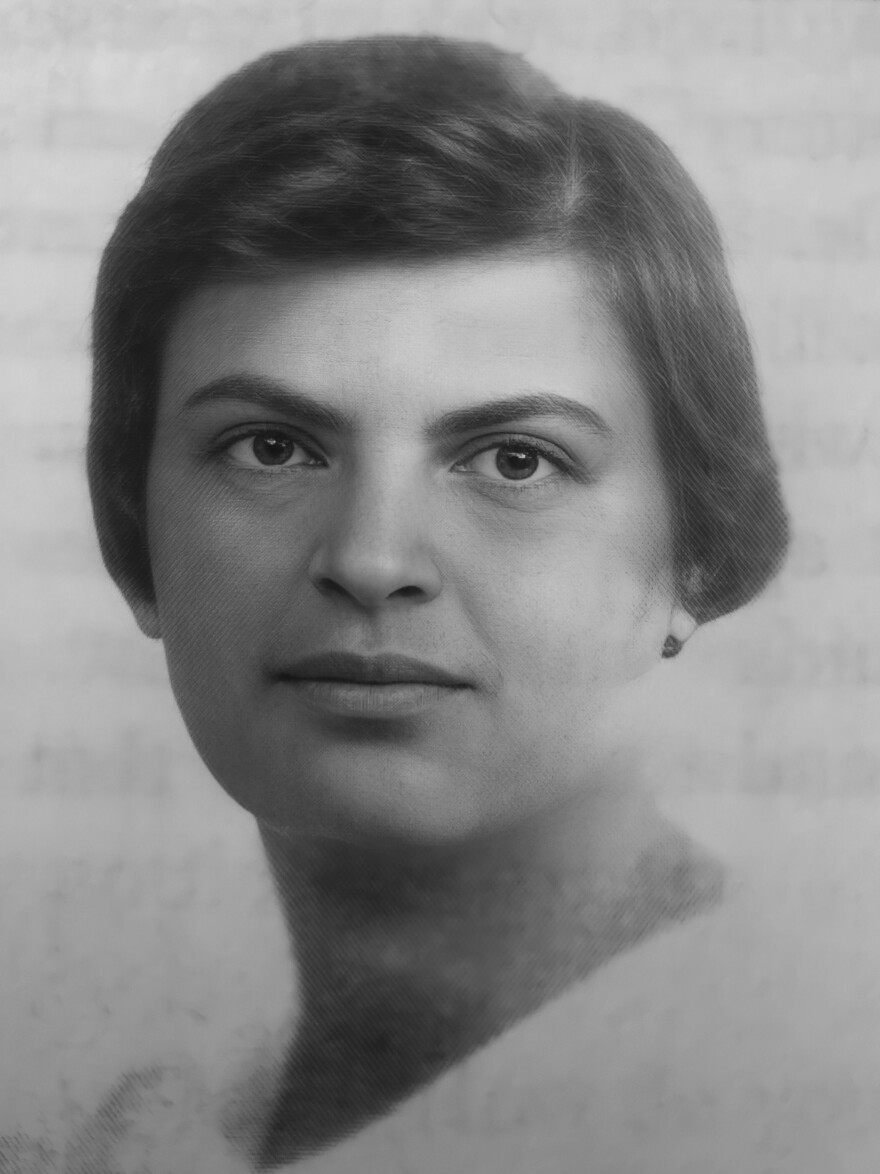
Soviet dictator Josef Stalin tossed out most Western reporters well before World War II began, and he certainly didn't want them back when his forces were being routed by Nazi Germany in the early stages of the war.
"This was the last thing that Stalin was interested in. The last thing he was worried about," said Alan Philps, a British journalist and author who was based in Moscow at various times in the 1970s, 80s, and 90s.
In his new book, The Red Hotel, Philps recounts how British Prime Minister Winston Churchill — a war correspondent in his younger days — told Stalin that Western journalists could provide stirring stories that would benefit all the countries battling the Nazis.
Stalin relented, reluctantly.
"Journalists who before had despaired of ever being able to report on Russia, they fought tooth and nail to get on a boat, on a plane, to Moscow and cover the epic battles," Philps said.
Altogether, around 50 journalists from the U.S., Britain and Australia were allowed in.
The country's most famous hotel
But Stalin was still Stalin, so there were rules. Journalists were required to live and work — under constant scrutiny — at the Metropol Hotel, just a couple short blocks from the Kremlin, and even closer to the Bolshoi Theatre.
The Metropol was, and is, the country's most iconic hotel, an Art Nouveau structure with soaring ceilings, stained glass windows, a large, gurgling fountain in the dining room — and gold leaf everywhere.

However, the Metropol's glory days had faded by the time the journalists checked in, and the place was also short on hospitality.
"What they weren't prepared for was a very chilly welcome, which was basically summed up by one of Stalin's propagandists, Ilya Ehrenburg, who said in wartime, any objective reporter should be shot," said Philps. "Of course, they were allies. There were not going to be shot. But they did find themselves in this sort of luxurious confinement, almost house arrest in the hotel."
Despite war-time scarcity, the journalists always had plenty of caviar, booze and cream cakes.

But they were kept far from the frontlines. They were force-fed Soviet propaganda and faced heavy-handed military censorship before any of their stories could be sent to their publications back home.
The most prominent American at the hotel was Edgar Snow of the Saturday Evening Post, who described it this way:
"Many correspondents do not leave the hotel for weeks in winter. A secretary orders breakfast ... shops for cigarettes and vodka, translates, interprets, teaches you Russian, and sometimes goes to bed with you."
The one thing journalists couldn't get was a real story.
During the Nazis siege of Leningrad — now St. Petersburg — civilians faced extraordinary hardship, including widespread starvation.
Yet when the Soviets briefed the Western journalists in Moscow, the official line was civilians had enough to eat and were coping just fine. The reporters knew this was a lie.
"If you were in Moscow, you actually had to join the parallel universe of Stalinism," said Philps. "If you wanted to get your copy through, you had to build on that fantasy that everything was fine and dandy in Leningrad."
The risks faced by the Soviet translators
As Philps researched his book, he planned to focus on the Western journalists.
Yet he found the more compelling tale to be the Soviet women carefully chosen by Soviet authorities to serve as translators for the reporters.
Consider Nadya Ulanovskaya.
"She was an extraordinary woman with a extraordinary biography," said Philps.

Ulanovskaya grew up in Ukraine when it was part of Russia, and joined the Russian revolution in 1917 when she was barely a teenager. As a young woman, she and her husband Alex became Soviet spies and were sent abroad to steal military secrets in the U.S., Europe and China.
Back home during the war, Ulanovskaya, who had fluent English, was chosen to work with — and help keep tabs on — the journalists. One of those she assisted was C.L. Sulzberger, a long-time foreign correspondent for the New York Times and part of the family that owns the newspaper.
By this time, Ulanovskaya had grown disenchanted with Stalin's brutal rule and sought to reveal the truth about the country, at great personal risk.
She took an Australian reporter, Godfrey Blunden, to secretly meet two elderly Soviet women at their apartment. Unauthorized meetings with ordinary Soviets was forbidden, and both these women had lost their husbands in Stalin's purges before the war.
"Blunden listened while she translated the stories of these two simple women, who survived by making woolen dolls to sell at the market," Philps said.
As they walked back to the hotel that night, Ulanovskaya told the Australian journalist, "You know, you can't report any of this. You can't put it in writing. And he said, 'Don't worry, Nadya. I will fictionalize it. I'll put it in a novel.'"
By the time the war ended in 1945, the Western journalists had checked out of the Metropol, and many had gone home to write books.
Blunden's 1947 novel was a big hit. The book was a thinly veiled disguise of his time in Moscow — and was sharply critical of Stalinism.
"It didn't take the Soviet security police long to work out where he'd been, who had taken him, and who the two ladies were," said Philps.
Soviet police soon went knocking on the door of Ulanovskaya. She was accused of providing "state secrets" to a foreigner. She was interrogated for days, until she began hallucinating from a lack of sleep.
Ultimately, she spent eight years in Soviet prisons.
After her release, she remained defiant. She translated Western books critical of the Soviet Union and helped circulate copies underground inside her country.
Parallels to the present
Philps said he set out to write a history book. But he came to see parallels between Stalin and the current Russian leader, Vladimir Putin.
"Stalin was very successful in extending the boundaries of the Soviet Union," Philps said. "Putin is really doing the same with Ukraine. He's established a Stalin cult. No one is allowed to say anything against the conduct of the war these days."
The tactics vary, but the aim is the same, Philps noted. Stalin permitted Western journalists into Moscow under tight restrictions. Putin's crackdown has prompted most Western journalists to leave the country.
One who stayed, Wall Street Journal reporter Evan Gershkovich, is currently jailed and accused of espionage.
"Putin has established total control of the written and broadcast media over 20 years — jst as Stalin did," Philps said.
Copyright 2023 NPR. To see more, visit https://www.npr.org.



